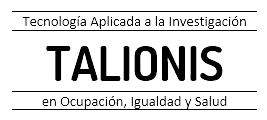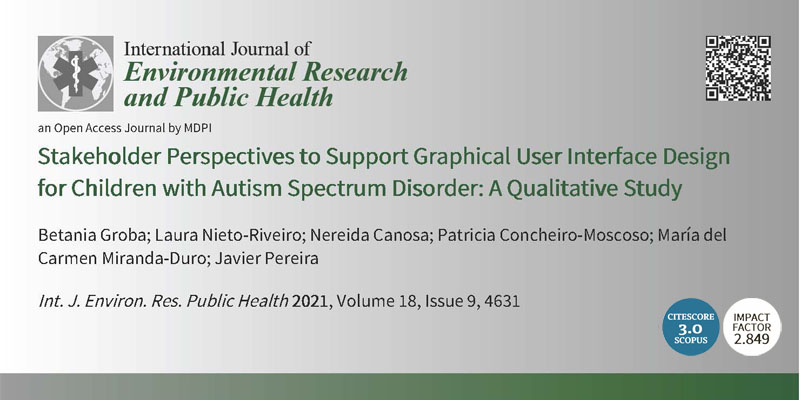Abstract
The development of digital supports for people with autism has increased considerably in recent years. Technology designers and developers have interpreted the needs and learning styles of people with autism in different ways. As a result, there are generic, non-specific or heterogeneous guidelines for the design and development of technology for people with autism. This study aims to identify and describe the recommended elements to support graphical user interface design for children with Autism Spectrum Disorder (ASD), considering the stakeholders’ perspective, engaged in a computer application development. A qualitative, longitudinal, multicentre study was carried out. A sample of 39 participants belonging to four groups of stakeholders participated: children with autism, family members, professionals with experience in the intervention with children with autism, and professionals with expertise in the design and development of assistive technology. The techniques used to formalise the collection of information from participants were semi-structured interviews and observation. MAXQDA 2020 software (Verbi Software, Berlin, Germany) was used to analyse the data. The result is a guide with suggestions to support an interface design that emerges from the stakeholder perspectives. This study provides useful information to offer alternatives for children with ASD and facilitate the understanding of daily life.
Keywords: autism spectrum disorder; children; graphical user interface; qualitative approach; digital support; assistive technology; activities of daily living
The research team will bear all the economic costs involved in the study, with the support of the CITIC, as Research Center accredited by Galician University System that is funded by “Consellería de Cultura, Educación e Universidades from Xunta de Galicia,” which provided 80% of funds through ERDF Funds, ERDF Operational Programme Galicia 2014-2020, and the remaining 20% was provided by “Secretaría Xeral de Universidades [Grant ED431G 2019/01]. Moreover, Patricia Concheiro-Moscoso obtained a scholarship [Ref.ED481A-2019/069] and María del Carmen Miranda-Duro [Ref.ED481A 2018/205] gained a scholarship to develop a Ph.D.
Acceso al artículo
https://doi.org/10.3390/ijerph18094631. Índice de impacto = 2.468 (2019). Categoría: Public, Environmental & Occupational Health. Puesto 32 de 171. Cuartil Q1

